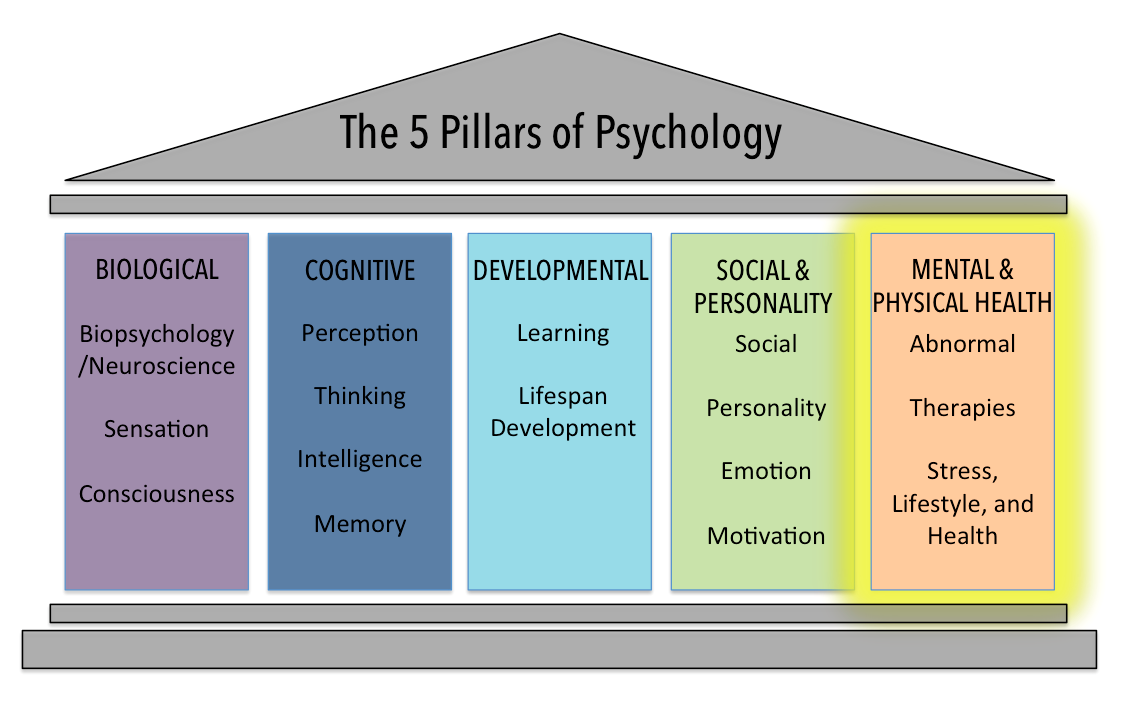The Mental and Physical Health Domain

What causes depression, and how can it be treated? How do people cope with anxiety? What helps someone recover from addiction? These are the kinds of questions asked within the mental and physical health domain of psychology.
This domain of psychology is what many people think of when they think about psychology—mental disorders and counseling. This includes the study of abnormal psychology (also called psychopathology) with its focus on abnormal thoughts and behaviors, as well as counseling and treatment methods, and recommendations for coping with stress and living a healthy life.
Disorders are formally classified in the Diagnostic and Statistical Manual of Mental Disorders (DSM-5-TR), which lists over 230 conditions. Each diagnosis includes:
- Symptoms
- Prevalence (how common it is)
- Risk factors
- Comorbidities (other conditions likely to occur alongside it)
The DSM is used across many clinical settings, from hospitals and clinics to private practices.
clinical and counseling psychology
-
Clinical psychology: Focuses on the diagnosis and treatment of psychological disorders and problematic behaviors. Many clinicians also contribute to research.
-
Counseling psychology: Works with individuals who are generally psychologically healthy, focusing on challenges related to emotions, relationships, work, or overall well-being.

This type of psychology is the area of psychology most visible in popular media, which sometimes leads to the misconception that all psychology is clinical or counseling psychology.
Therapy
Today’s therapies draw from many perspectives:
- Psychoanalytic (Freud): emphasis on unconscious processes.
- Humanistic (Rogers): client-centered therapy, unconditional positive regard.
- Behavioral and cognitive: behavioral therapy, cognitive therapy, and cognitive-behavioral therapy (CBT).
health psychology
Health psychology focuses on the study of how psychological factors, including thoughts, emotions, behaviors, and social interactions, influence health and well-being. It involves understanding the ways in which psychological processes interact with biological, social, and environmental factors to impact physical health, illness, and healthcare utilization.
Research topics in health psychology include:
- Health behaviors (exercise, diet, substance use).
- Stress, coping, and emotion regulation.
- Patient–provider interactions and health communication.
- Prevention, health promotion, and behavior change.
- Cultural and social influences on health outcomes.
Health psychologists may:
- Design interventions to reduce risky behaviors.
- Study how relationships and stress affect illness.
- Influence public policy and health education.
